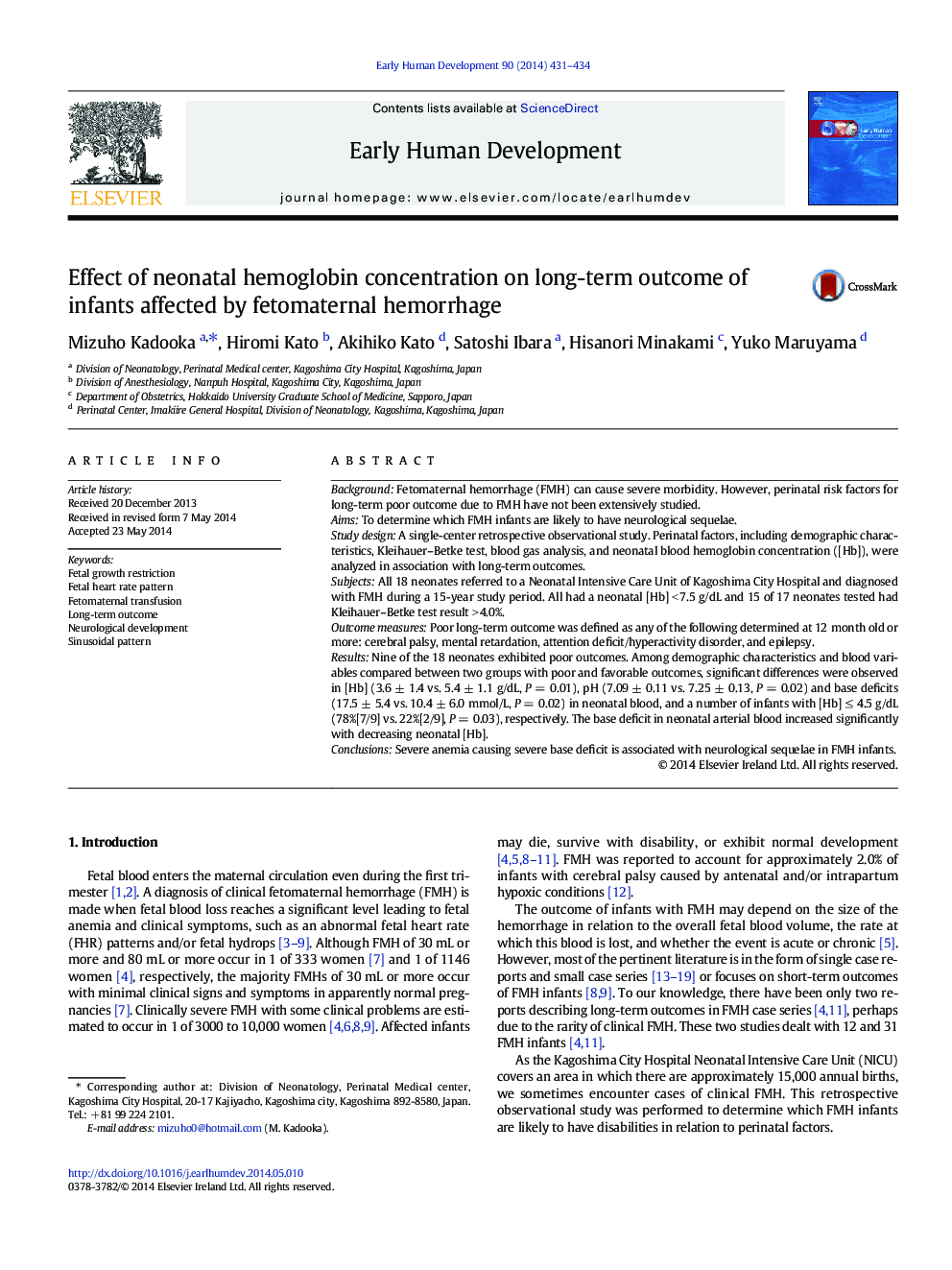| Article ID | Journal | Published Year | Pages | File Type |
|---|---|---|---|---|
| 3916503 | Early Human Development | 2014 | 4 Pages |
•Outcome of 18 infants with fetomaternal hemorrhage (FMH) were examined.•All 18 FMH infants had hemoglobin concentration ([Hb]) ≤ 7.1 g/dL in the blood.•Estimated prevalence of FMH with [Hb] < 7.1 g/dL was one per 11,000 live births.•Base deficit increased with decreasing [Hb] in the neonatal blood.•Nine FMH infants developed permanent disabilities.•Severe anemia and severe base deficit were associated with disabilities.
BackgroundFetomaternal hemorrhage (FMH) can cause severe morbidity. However, perinatal risk factors for long-term poor outcome due to FMH have not been extensively studied.AimsTo determine which FMH infants are likely to have neurological sequelae.Study designA single-center retrospective observational study. Perinatal factors, including demographic characteristics, Kleihauer–Betke test, blood gas analysis, and neonatal blood hemoglobin concentration ([Hb]), were analyzed in association with long-term outcomes.SubjectsAll 18 neonates referred to a Neonatal Intensive Care Unit of Kagoshima City Hospital and diagnosed with FMH during a 15-year study period. All had a neonatal [Hb] < 7.5 g/dL and 15 of 17 neonates tested had Kleihauer–Betke test result > 4.0%.Outcome measuresPoor long-term outcome was defined as any of the following determined at 12 month old or more: cerebral palsy, mental retardation, attention deficit/hyperactivity disorder, and epilepsy.ResultsNine of the 18 neonates exhibited poor outcomes. Among demographic characteristics and blood variables compared between two groups with poor and favorable outcomes, significant differences were observed in [Hb] (3.6 ± 1.4 vs. 5.4 ± 1.1 g/dL, P = 0.01), pH (7.09 ± 0.11 vs. 7.25 ± 0.13, P = 0.02) and base deficits (17.5 ± 5.4 vs. 10.4 ± 6.0 mmol/L, P = 0.02) in neonatal blood, and a number of infants with [Hb] ≤ 4.5 g/dL (78%[7/9] vs. 22%[2/9], P = 0.03), respectively. The base deficit in neonatal arterial blood increased significantly with decreasing neonatal [Hb].ConclusionsSevere anemia causing severe base deficit is associated with neurological sequelae in FMH infants.
